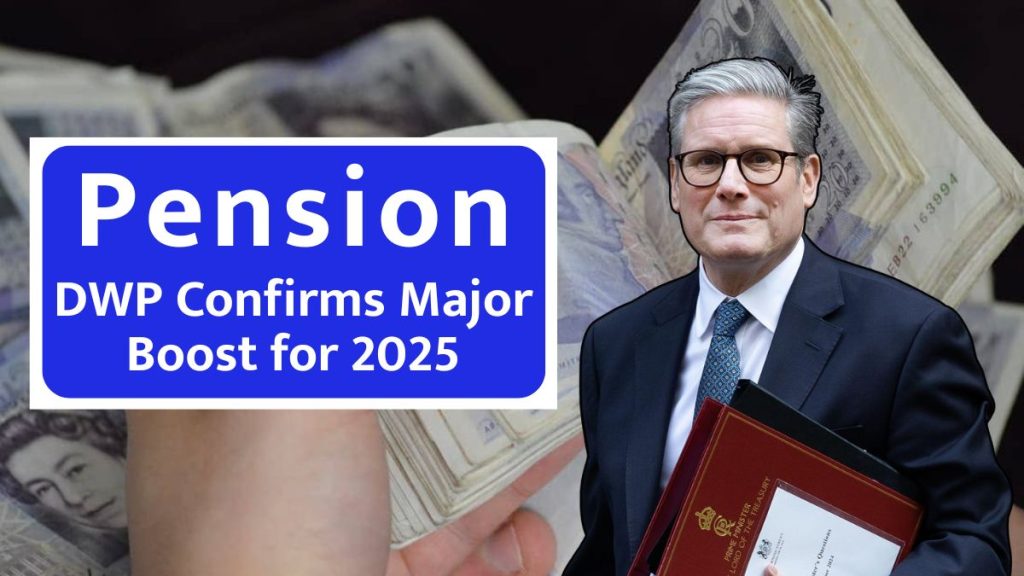The UK government has officially confirmed a significant increase in the State Pension for 2025, marking one of the most generous rises in recent years. The boost is part of the triple lock guarantee, a policy ensuring pensions rise each year in line with the highest of inflation, average earnings growth, or a minimum of 2.5%.
With high inflation, soaring energy bills, and rising food prices, this increase will offer much-needed support to millions of retirees. However, not all pensioners will benefit equally, which makes understanding the new rules and rates essential.
Why the State Pension Is Increasing in 2025

The triple lock system has been in place to protect pensioners’ incomes, guaranteeing annual increases in line with economic pressures. For 2025:
- Inflation (CPI) was high but has eased compared to 2023–2024.
- Average wage growth hit record levels, outpacing inflation and triggering a larger pension increase.
- The 2.5% minimum safeguard ensured that even in years of low inflation, pensioners would not be left behind.
This year, wage growth was the strongest factor, resulting in one of the largest pension uplifts in UK history.
Quick Summary – UK State Pension Increase 2025
| Category | Details |
|---|---|
| Authority | Department for Work and Pensions (DWP) |
| Increase Mechanism | Triple Lock Guarantee |
| New Full State Pension | Over £221 per week (~£11,500 annually) |
| New Basic State Pension | Nearly £170 per week (~£8,840 annually) |
| Eligibility | Based on National Insurance contributions |
| Minimum NI Years | 10 years (any pension), 35 years (full pension) |
| Payment Frequency | Every 4 weeks (bank transfer) |
| Implementation Date | October 2025 |
| Additional Support | Pension Credit for low-income pensioners |
| Official Website | gov.uk |
How Much Will the State Pension Rise?
According to the DWP:
- The New State Pension will rise to over £221 per week, equal to more than £11,500 annually.
- The Basic State Pension will increase to nearly £170 per week, around £8,840 annually.
This increase means pensioners will have extra income to help cover higher living costs, from food shopping to energy bills.
Eligibility for the New Rates
Your entitlement to the new pension rates depends on your National Insurance (NI) record:
- Full New State Pension: Requires 35 qualifying years of NI contributions.
- Partial Pension: Awarded if you have between 10 and 34 years of NI contributions.
- Minimum Requirement: At least 10 years of NI contributions for any pension.
If you reached State Pension age before October 2016, you will continue on the Basic State Pension system instead of moving to the new scheme.
Pension Credit – Extra Help for Low-Income Pensioners
Not all pensioners automatically benefit from the pension increase. Those on low incomes may be eligible for Pension Credit, which acts as a top-up:
- Minimum guaranteed income of £218.15 per week for single pensioners.
- Minimum guaranteed income of £332.95 per week for couples.
Pension Credit also unlocks access to other benefits, including:
- Help with housing costs.
- Council Tax support.
- Free TV licences for pensioners over 75.
Worryingly, thousands of eligible pensioners still do not claim Pension Credit. Experts urge older people to check eligibility, as it can provide significant financial relief.
When Will the Pension Increase Take Effect?
The new State Pension rates will apply from October 2025.
- Payments are made every four weeks, directly into pensioners’ bank accounts.
- The exact date of payment depends on your National Insurance number, as DWP staggers payments to manage the system efficiently.
Why This Increase Matters
The pension rise is a lifeline for many retirees as living costs continue to climb. The increase helps pensioners to:
- Cover food and energy bills.
- Rely less on personal savings.
- Enjoy greater financial security in retirement.
For many, the uplift represents not just extra money, but peace of mind in an uncertain economic climate.
How to Check Your State Pension Forecast
If you’re unsure about how much you’ll receive after the 2025 increase:
- Use the State Pension forecast tool on the official gov.uk website.
- Contact the Future Pension Centre for individual guidance.
- Review your NI contribution history and consider voluntary top-ups if you have gaps.
Checking early allows you to plan for retirement with confidence.
FAQs on the UK State Pension Increase 2025
1. How much will the State Pension increase in 2025?
The full New State Pension will rise to over £221 per week, while the Basic State Pension will increase to nearly £170 per week.
2. When will the new pension rates be applied?
The new rates will apply from October 2025, with payments made every four weeks.
3. What is the triple lock guarantee?
It ensures that pensions rise annually by the highest of inflation, average earnings growth, or 2.5%.
4. Who qualifies for the full State Pension?
You need 35 years of National Insurance contributions for the full New State Pension. At least 10 years are required to qualify for any pension.
5. What extra help is available for low-income pensioners?
Pension Credit provides a top-up to ensure minimum income levels and unlocks access to additional benefits like housing support and free TV licences.












